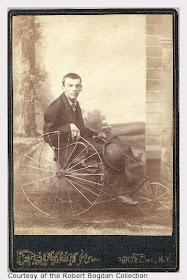I thought about this story a lot yesterday ... not about the honored student-produced video, but rather what the video was about.
Why didn’t Archer Hadley, his parents, and his classmates petition the School Board to install automatic doors as a basic accessibility feature, to comply with the Americans with Disabilities Act?
Maybe they did. Maybe the fundraiser was a fall-back strategy after advocacy failed. Personally, I doubt advocacy was ever really considered. It seems like everyone involved ether consciously or unconsciously kept this whole matter squarely in the realm of a personal quest … inspiring, maybe educational, certainly not confrontational. It happens a lot.
Why do non-trivial numbers of smart, energetic disabled people like Archer choose to address systemic barriers with fundraising and “awareness” campaigns instead of advocacy? Sometimes they are deliberately diverted this way by people in power who would find an advocacy campaign embarrassing, awkward, and of course expensive. What interest me more are the cultural and emotional reasons. I can’t read Arthur’s mind, but I have some thoughts of my own about why things go this way so often:
- To some people, advocacy is energizing, but for others, it seems rude, ridiculous, or scary. For some people, fundraising and game-ish “events” for a cause are fun, familiar, and sociable, while serving a useful purpose. For others, these activities feel either like begging, or, conversely, like an excuse for well-off people to have a party. In other words, advocacy and fundraising come with cultural associations, and appeal in different ways to people with different personality types. I get the feeling that Archer comes from a culture that disapproves of public advocacy, while praising fundraising and awareness events.
- A lot of people can’t imagine solving a problem through legal or political avenues. Not just because they are intimidated, but also because changing “the system” seems impossible, and the efforts to do so feel futile. Getting your family, friends, and neighbors mobilized to raise a specific amount of money, on the other hand, is at least a lot simpler, and the results are more likely to be exactly what you wanted them to be, since you call the shots and there’s no need for negotiations or compromise. It’s why Bill Gates funds a charity to solve the worlds problems, instead of running for office. On a much smaller scale it may be why Archer saw a problem affecting himself personally, and chose a more “accessible”, person-to-person approach instead of trying to navigate a maze of bureaucracy, mostly likely having to settle for one only automatic door, or maybe reduced opening force on all the doors ... better maybe, but not best.
- I think a lot of teenagers with disabilities as significant as Archer's have a genuinely hard time fully believing deep inside that they have the “right” to full access and equal opportunity. I’m not suggesting their self-esteem is in the dumps … though for some it may be. I’m saying that a teen with so many very obvious physical impairments may well feel that being in everyone else’s debt and relying on kindness and generosity is just part of the deal. I felt that way when I was Archer's age. At the time I would have said it was just common sense, that someone “like me” couldn’t realistically expect everything to be open to me. Which is not to say that I didn’t want things to be better. Just that I couldn’t conceive of presenting the really big improvements as anything but humble requests.
How we choose to deal with the problems and barriers of disability says a lot about our culture, our personalities, and where we are in our journey with disability.
(Note: I originally have the young man's name as Arthur, which was a misread on my part.)
----------
Facebook













